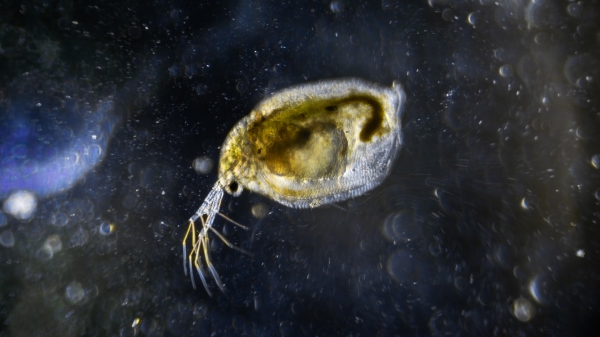Biological sciences professor earns grant to study species variations in water fleas
Biological Science Professor Chris Steiner was awarded a Small Research 2023 Grant from the British Ecological Society to probe for a possible link between intraspecific trait variation and eco-evolutionary population dynamics in the freshwater Crustacean Daphnia magna (water flea). As a first step in this project, Dr. Steiner completed the sampling of a large number of different Daphnia populations in our Michigan landscapes.
Linking intraspecific trait variation to eco-evolutionary dynamics of Daphnia populations
 Biologists have long recognized that evolution can allow species to persist when faced with environmental change. However, there's increasing evidence that evolutionary change can occur at such a rapid pace that it can alter and stabilize the dynamics of populations at short time scales - which are commonly referred to as eco-evolutionary dynamics.
Biologists have long recognized that evolution can allow species to persist when faced with environmental change. However, there's increasing evidence that evolutionary change can occur at such a rapid pace that it can alter and stabilize the dynamics of populations at short time scales - which are commonly referred to as eco-evolutionary dynamics.
Steiner's past research has demonstrated that rapid genetic change within growing seasons can enhance the temporal stability of populations of Daphnia pulex, a tiny zooplankton species in Michigan freshwater systems and many other parts of the world. Unknown is whether such genetic change is adaptive and what traits are associated with turnover in genetic composition.
In this research project, Steiner will measure intraspecific trait variation in Daphnia populations over time and among natural pond populations using laboratory-based experiments. In addition, he'll conduct reciprocal transplant experiments in the study ponds to quantify fitness responses in the field and determine if D. pulex genotypes are locally adapted to their home pond environments as well as even in the time windows during which they were collected.
This project will provide insight into whether and how, rapid adaptation affects the rate of genetic change of Daphnia populations in seasonally varying environments.